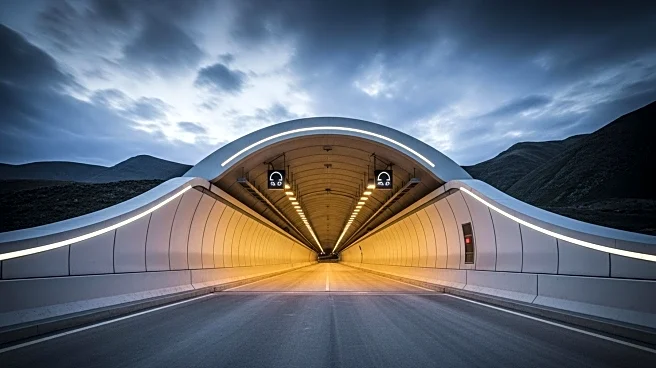What's Happening?
Wolfgang Porsche, a German-Austrian automotive magnate, has secured permission from Salzburg authorities to construct a private access road leading to his villa, formerly owned by Jewish writer Stefan Zweig. The project involves building a 500-meter tunnel through a limestone hill to a subterranean garage, allowing Porsche to park eight cars. The decision has sparked local opposition, with critics arguing it represents preferential treatment for the wealthy. The villa, a historical site, was home to Zweig from 1919 to 1934 before he fled due to rising fascism. The project has raised concerns about environmental impact and historical preservation.
Why It's Important?
The controversy highlights ongoing debates about inequality and the influence of wealth on urban planning decisions. Critics argue that the project undermines trust in the rule of law and sets a precedent for prioritizing private interests over public and historical concerns. The villa's historical significance as Zweig's residence adds a layer of ethical complexity, given Porsche's family history linked to Nazi Germany. The decision could impact Salzburg's cultural heritage and raise questions about the city's commitment to preserving historical sites.
What's Next?
Despite opposition, the project is expected to proceed following approval from Salzburg's city planning committee. Environmentalists have protested, but the state of Salzburg's vote is considered a formality. The construction is anticipated to begin soon, potentially leading to further public dissent and legal challenges. The situation may prompt discussions on urban development policies and the balance between private property rights and historical preservation.
Beyond the Headlines
The project raises ethical questions about the legacy of historical figures and the responsibility of preserving cultural heritage. The villa's connection to Zweig, a humanist and pacifist, contrasts with Porsche's family history, prompting reflection on how history is remembered and honored. The situation may influence future policies on historical site preservation and the role of wealth in shaping urban landscapes.









